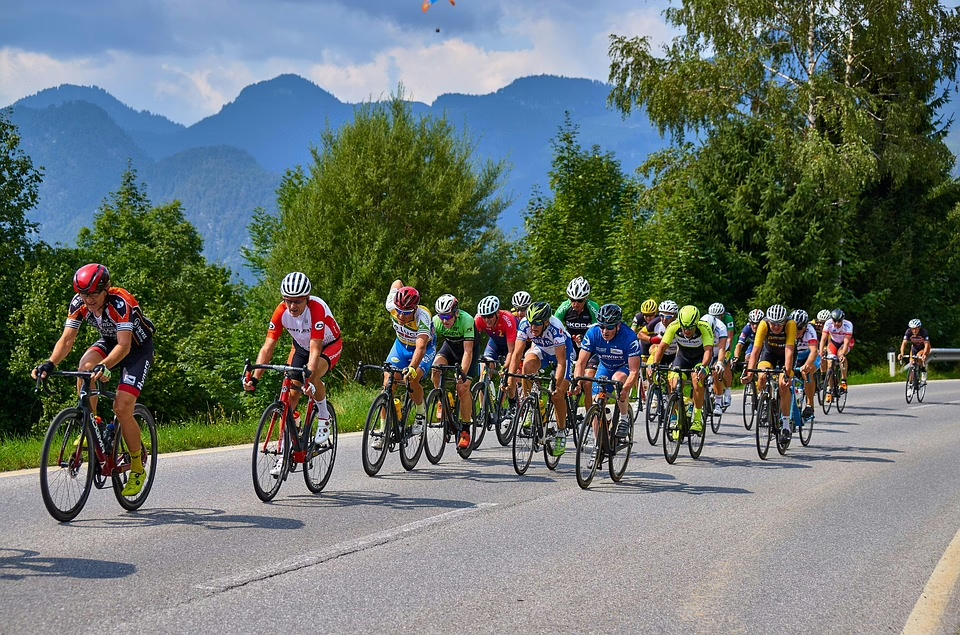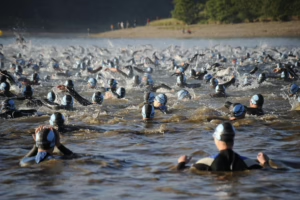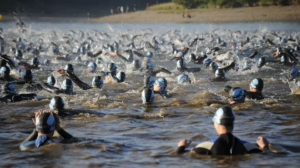Fuel Your Triathlon: Nutrition Strategies for Peak Performance
Triathlons are among the most demanding endurance sports, requiring both physical and mental endurance. Athletes must swim, bike, and run, often over long distances and in various conditions. To perform optimally, triathletes need not only rigorous training but also a well-planned nutrition strategy. This article will explore nutrition methods and strategies that can significantly impact triathlon performance, discussing dietary needs before, during, and after races, as well as daily nutrition habits to build a strong foundation.
Understanding the Triathlon
Before diving into nutrition strategies, it is essential to understand what a triathlon entails. Generally, triathlons consist of three segments: swimming, cycling, and running, performed consecutively without breaks. The distances can vary significantly:
- Sprint Triathlon: 750m swim, 20km bike, 5km run
- Olympic Triathlon: 1.5km swim, 40km bike, 10km run
- Half Ironman: 1.9km swim, 90km bike, 21.1km run
- Ironman: 3.8km swim, 180km bike, 42.2km run
Each segment requires endurance and energy, making it critical for athletes to understand their nutritional needs to succeed.
The Importance of Nutrition
Nutrition plays a pivotal role in endurance sports. Proper fueling not only enhances performance but also aids in recovery, boosts energy levels, and helps prevent injuries.
Carbohydrates: The Key Fuel Source
Carbohydrates are the primary source of energy for endurance sports. They are crucial for maintaining glycogen stores in muscles and the liver, providing the fuel needed for swimming, cycling, and running. Consuming adequate carbohydrates before and during training can significantly impact performance.
Recommended Intake
-
Daily: Athletes should aim for 6-10 grams of carbohydrates per kilogram of body weight, depending on training intensity and duration.
-
Before Training: Carbs consumed 1-3 hours before exercise can help top off glycogen stores. Good sources include oatmeal, bananas, and energy bars.
-
During Training: For sessions longer than an hour, consume 30-60 grams of carbs per hour. Options include gels, chews, and sports drinks.
Proteins: For Muscle Repair and Recovery
While carbohydrates are crucial during activity, proteins are essential post-exercise. They aid in muscle repair and can help mitigate the breakdown of muscle tissue during intense workouts.
Recommended Intake
-
Daily: Athletes should aim for 1.2-2.0 grams of protein per kilogram of body weight, depending on their training phase.
-
Post-training: A protein-rich meal or snack should be consumed within 30 minutes of finishing a workout. Good options include yogurt, protein shakes, or chicken.
Fats: The Energy Reserve
Fats serve as a secondary energy source, especially in longer races where glycogen stores may become depleted. Using fats as an energy source helps spare carbohydrates and supports endurance.
Recommended Intake
- Daily: Healthy fats should make up 20-35% of total daily calorie intake. Focus on sources like avocados, nuts, and olive oil.
Hydration: Staying Balanced
Hydration is critical for performance, as even mild dehydration can adversely impact endurance and strength. Maintaining proper fluid balance is vital for temperature regulation and muscle function.
Hydration Strategies
-
Daily Intake: Athletes should aim for at least 2-3 liters of water daily, increasing intake before, during, and after training.
-
During Training: For workouts longer than an hour, athletes should consume electrolytes, particularly sodium, potassium, and magnesium to balance fluid loss through sweat.
Pre-Race Nutrition Strategy
The days and hours leading up to a race are crucial for setting the stage for peak performance.
Days Before the Race
-
Tapering: Reduce training volume while maintaining intensity to allow the body to recover.
-
Carbohydrate Loading: Gradually increase carbohydrate intake to maximize glycogen stores. This can involve meals rich in pasta, rice, and whole grains.
Day Before the Race
-
Hydration: Focus on adequate hydration without overconsumption leading to bloating.
-
Mild Dinner: A carb-rich meal, such as pasta with a small amount of lean protein and vegetables, is generally recommended.
Race Day Morning
-
Timing: Have breakfast 2-3 hours before the race to allow for digestion.
-
Meal Composition: Choose easily digestible carbs—oatmeal, a bagel with honey, or a banana. Include a small amount of protein and avoid high-fiber and high-fat foods that may cause gastrointestinal distress.
Nutrition During the Race
During a triathlon, fueling strategies shift according to the race segment.
Swimming
Hydration is critical, but eating during the swim is not possible. Focus on hydration the night before and during transitions.
Transition to Cycling
-
Carbohydrate Intake: Use the cycle segment to replenish calories. Products like sports drinks, energy bars, and gels can be very effective.
-
Timing: Aim for 30-60 grams of carbohydrates per hour. Practice this during training to determine what works best for you.
Transition to Running
As you transition to the running segment, continue to hydrate and replenish carbohydrates. Gels or chews can be consumed on the go.
Nutrition Post-Race: Recovery
Recovery nutrition is vital for replenishing glycogen stores, repairing muscle tissue, and rehydrating.
Immediate Recovery
- Within 30 Minutes: Consume a recovery drink or protein shake containing carbohydrates and protein. The ideal ratio is around 3:1 carb to protein.
Subsequent Meals
- Post-Race Meals: Focus on whole foods that offer a balance of macronutrients—grains, lean protein, and plenty of vegetables. Examples include chicken stir-fry with rice or quinoa, or a hearty bean salad.
Daily Nutrition Habits
Maintaining proper nutrition isn’t just about race day; it’s about the everyday habits that help an athlete succeed.
Balanced Meals
Aim for meals that incorporate all three macronutrients:
- Carbohydrates: Whole grains, fruits, and vegetables.
- Proteins: Lean meats, legumes, and dairy.
- Fats: Healthy oils, nuts, and avocados.
Snack Wisely
Healthy snacks, including fruits, nuts, yogurt, and energy bars, can help maintain energy levels throughout the day.
Monitor and Adjust
Every athlete is different. It can be useful to keep a food diary or work with a sports nutritionist to adjust dietary habits as needed.
Common Nutritional Mistakes
Understanding potential mistakes can help triathletes avoid pitfalls.
Skipping Meals
Under-fueling can lead to reduced performance and increased fatigue. Ensure regular meals and snacks.
Over-Relying on Supplements
While gels and bars are convenient, athletes should prioritize whole food sources of nutrition whenever possible.
Neglecting Recovery Nutrition
Forgoing post-race nutrition can hinder recovery, impacting future training and performance.
Ignoring Individual Needs
Each triathlete has unique needs based on their body composition, metabolism, and training intensity. It’s essential to tailor nutrition strategies accordingly.
Conclusion
Fueling your body for a triathlon requires knowledge, planning, and strategic execution. By focusing on the right combination of carbohydrates, proteins, fats, and hydration, athletes can optimize their performance throughout the race. Establishing solid daily nutrition habits, fine-tuning pre-race and post-race meals, and avoiding common mistakes will help pave the road for success in both training and competition.
With the right nutrition strategies, you not only enhance your performance but also enrich your overall experience in the demanding and exhilarating world of triathlons. Embrace the challenge and prepare to cross that finish line feeling accomplished and ready for the next race.
This article serves as a comprehensive guide to nutrition strategies specifically tailored for triathletes seeking peak performance. If you’re looking for detailed references or more in-depth studies on specific topics mentioned, feel free to ask!


























Add Comment